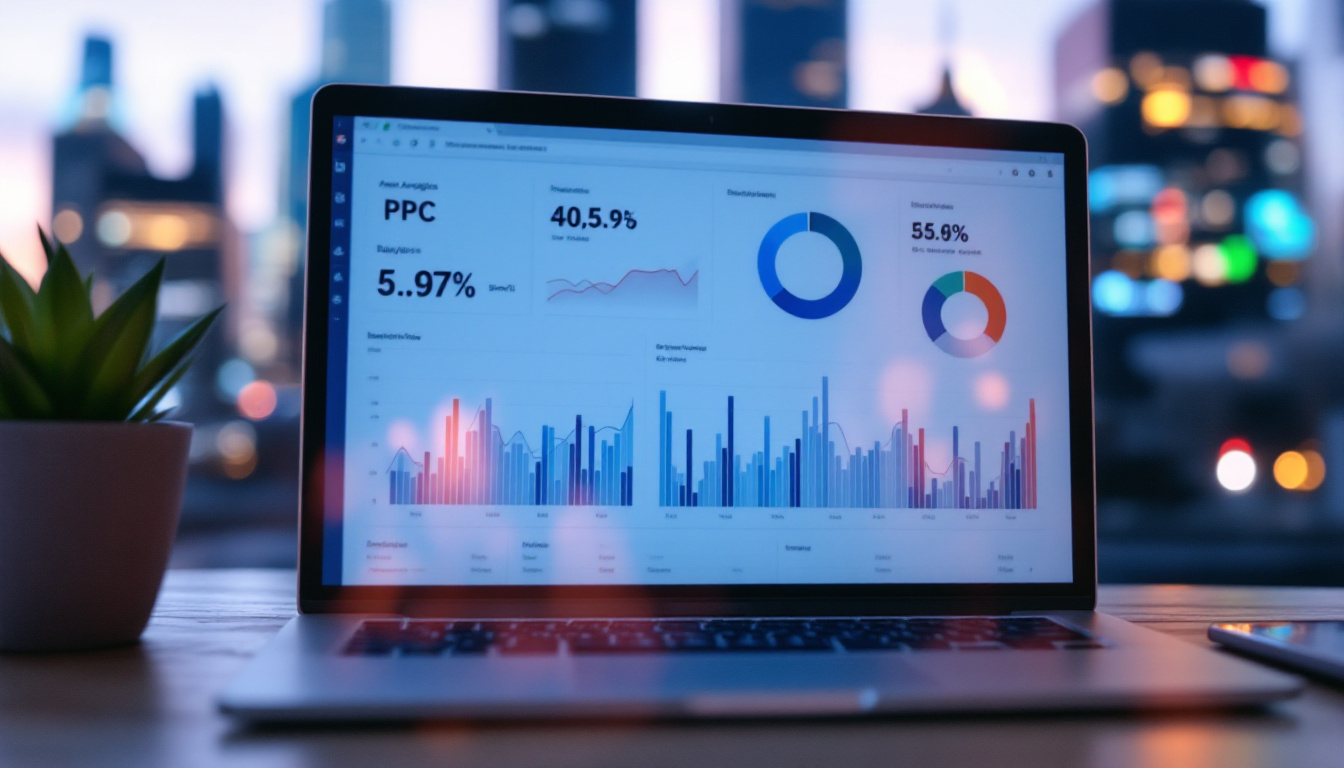Top PPC FAQs Answered for Boston, MA Businesses

PPC, or pay-per-click advertising, has become an integral part of many businesses' marketing strategies, especially for those in competitive markets like Boston. As companies invest in PPC, many questions arise about its mechanics, benefits, and practical implications. This article aims to address some of the most frequently asked questions regarding PPC for businesses operating in the vibrant city of Boston, Massachusetts.
What is PPC and how does it work?
PPC, or pay-per-click, is an online advertising model where advertisers pay each time a user clicks on one of their ads. It is an effective way to generate traffic to a website, and it is especially useful for local businesses looking to improve their visibility in specific geographic areas, such as Boston. The most common platform for PPC advertising is Google Ads, which allows businesses to display ads in Google's search results and across its network. This model not only helps businesses reach their target audience but also allows them to manage their advertising budget effectively, ensuring that they only pay when someone shows genuine interest by clicking on their ad.

The mechanics of PPC are fairly straightforward. Advertisers bid on keywords that they believe potential customers will use when searching online. Once the bid is placed, the search engine uses several factors, including bid amount and ad quality, to determine the placement of ads. The goal is not just to appear on the first page of search results, but also to entice users to engage with the ad and ultimately convert into a customer. This means that a well-crafted ad with compelling copy and a strong call-to-action can significantly increase the chances of a click, making the choice of words and design critical in the PPC landscape.
How PPC Works in Practice
When a user performs a search using keywords that an advertiser has bid on, the search engine triggers a process called an auction. This auction determines which ads are shown and in what order. The winning ads are those that achieve the best balance of bid amount and ad quality score, which considers relevance and landing page experience. This auction process happens in real-time, ensuring that the most relevant ads are displayed to users based on their search intent, thus enhancing the overall user experience.
Once users click on an ad, they are directed to a landing page, ideally designed to encourage a specific action, such as signing up for a newsletter or making a purchase. The cost of the click is deducted from the advertiser's budget, which means the more effective the campaign, the higher the return on investment. Additionally, advertisers can track the performance of their ads using various metrics, such as click-through rates and conversion rates, allowing them to refine their strategies over time. By continuously optimizing their campaigns based on data insights, businesses can improve their ad performance and maximize their advertising spend, making PPC a dynamic and adaptable marketing strategy.
Why is PPC important for local businesses?
PPC advertising provides several advantages for local businesses in Boston looking to enhance their online presence. First and foremost, it allows businesses to generate immediate traffic to their websites, unlike organic search methods that can take time to yield results. Additionally, local targeting enables businesses to reach customers who are geographically close to their physical locations.
By using geographic targeting features, Boston businesses can ensure their ads are displayed to individuals in specific neighborhoods or even within a certain distance of their storefronts. This localized approach maximizes the relevance of the ads, increasing the chances of conversion. Furthermore, PPC campaigns can be tailored to highlight special promotions or events that are unique to the local community, creating a sense of urgency and encouraging immediate action from potential customers.
Moreover, local businesses can benefit from utilizing ad extensions, such as location and call extensions, which provide additional information directly in the ad. This not only helps in attracting more clicks but also enhances user experience by making it easier for customers to find directions or contact the business directly. For instance, a local coffee shop can showcase its address and phone number in the ad, making it convenient for customers to visit or call in for an order. This level of accessibility can significantly boost foot traffic and customer engagement, further solidifying the business's presence in the community.
Benefits of PPC for Local Businesses
- Cost Control: Many platforms allow you to set daily or monthly budgets, giving businesses control over their spending.
- Measurable Results: PPC campaigns can be tracked and analyzed, providing insights on performance and areas of improvement.
- Speedy Results: Unlike SEO efforts which can take months, PPC can deliver instant visibility and traffic when set up effectively.
How to select the best PPC platform?
Selecting the right PPC platform can be a game-changer for Boston businesses. Several platforms are available, including Google Ads, Bing Ads, and social media platforms like Facebook and Instagram. Choosing the right one depends on the nature of the business and its target audience.
Google Ads is often the go-to option due to its dominance in online searches. However, other platforms may yield better results based on demographic targeting or specific interests. For example, Facebook Ads offer robust demographic targeting that can help local businesses engage with specific customer segments effectively. This is particularly advantageous for businesses looking to reach niche markets or those that rely heavily on visual content, as Instagram can be a powerful tool for showcasing products through eye-catching imagery.
Factors to Consider
- Target Audience: Identify where your customers spend most of their time online.
- Budget: Determine how much you are willing to invest and how it aligns with your chosen platform.
- Business Type: Consider what types of ads perform best in your industry.
Ultimately, some businesses benefit from multi-platform strategies that diversify their outreach and optimize their advertising spend. Testing different channels can lead to discovering the most effective methods for generating leads and conversions. Additionally, it’s essential to analyze the performance metrics of each platform regularly. Metrics such as click-through rates, conversion rates, and cost-per-acquisition can provide valuable insights into which platforms are delivering the best return on investment. By continuously refining your approach based on these insights, you can ensure that your PPC campaigns remain effective and aligned with your business goals.
Moreover, consider the user experience on each platform. For instance, Google Ads often leads users to search results that may include competitors, while Facebook Ads can create a more immersive experience by integrating ads seamlessly into users' feeds. This difference can significantly impact user engagement and conversion rates. Therefore, understanding how your audience interacts with ads on various platforms can help tailor your campaigns for maximum effectiveness, ultimately driving better results for your business.
What are the costs associated with PPC?
The cost of PPC can vary significantly based on several factors, including industry competitiveness, keyword selection, and geographical area. In Boston, where competition is high, businesses may find that costs can also rise in correlation with the demand for certain keywords. For instance, industries such as legal services or insurance often see higher CPCs due to the lucrative nature of the leads generated, making it imperative for businesses to stay vigilant about their spending.
Typically, companies are charged on a cost-per-click (CPC) basis. This means that for every click on an ad, the business pays a predetermined fee. The actual CPC can fluctuate based on auction dynamics, meaning better-designed campaigns tend to perform more effectively, allowing businesses to secure placements at lower costs. Moreover, the quality score of an ad, which is influenced by factors such as click-through rates and ad relevance, can significantly affect CPC, making it crucial for advertisers to focus on quality as well as quantity.
Additional Costs to Consider
- Landing Page Development: Creating optimized landing pages may incur costs. A well-designed landing page not only enhances user experience but also improves conversion rates, making it a worthwhile investment.
- Management Fees: If hiring an agency, management fees should be accounted for in the budget. These fees can vary widely based on the agency's expertise and the scope of services provided, including strategy development and performance analysis.
- A/B Testing: Running multiple ads to test performance can add to expenses but is essential for optimizing campaigns. This process allows businesses to identify which elements resonate best with their audience, ultimately leading to more effective ad spend.
To ensure a strong return on investment, businesses should regularly analyze their expenses against the revenue generated from PPC efforts. A clear understanding of costs will aid in budgeting effectively for future campaigns. Additionally, tracking metrics such as conversion rates and customer acquisition costs can provide deeper insights into the effectiveness of PPC strategies. This data-driven approach not only helps in refining campaigns but also empowers businesses to make informed decisions about where to allocate their marketing budgets for maximum impact.
How to measure the success of your PPC campaigns?
Measuring the success of PPC campaigns is crucial for optimizing strategy and maximizing return on investment. Businesses should track a range of key performance indicators (KPIs) to assess how well campaigns are performing. Popular metrics to monitor include clicks, cost per acquisition, conversion rates, and overall ROI.

Most PPC platforms offer built-in analytics tools that provide comprehensive reports on ad performance. Additionally, utilizing third-party analytics tools can help businesses dive deeper into data, providing insights into user behavior and campaign effectiveness.
Key Metrics to Track
- Click-Through Rate (CTR): Indicates how often people clicked your ad after seeing it.
- Conversion Rate: The percentage of clicks that resulted in a desired action.
- Quality Score: A Google Ads metric that affects ad rankings based on relevance and performance.
Regularly reviewing these metrics empowers businesses to understand what's working, what isn't, and where adjustments are needed. By being data-driven and responsive to campaign performance, Bostons's local businesses can continue to refine their PPC strategies.

As a Google Ads expert, I bring proven expertise in optimizing advertising campaigns to maximize ROI.
I specialize in sharing advanced strategies and targeted tips to refine Google Ads campaign management.
Committed to staying ahead of the latest trends and algorithms, I ensure that my clients receive cutting-edge solutions.
My passion for digital marketing and my ability to interpret data for strategic insights enable me to offer high-level consulting that aims to exceed expectations.





























